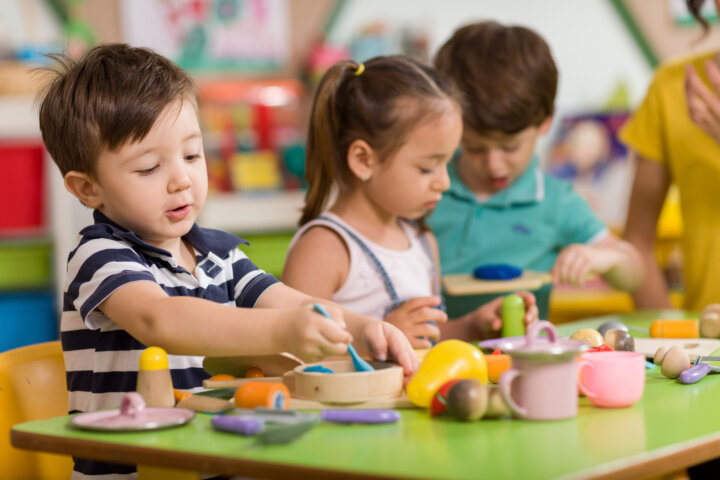Swedish as multiparty work : Tailoring talk in a second language classroom
Hur agerar nyanlända elever med begränsade kunskaper i svenska språket som deltagare i andraspråksundervisningen? Det har forskaren Anna Åhlund undersökt i sin avhandling.
Anna Åhlund
Professor Karin Aronsson, Stockholms universitet, universitetslektor Rikard Jonsson, Stockholms universitet
Professor Numa Markee, University of Illinois at Urbana-Champaign, USA
Stockholms universitet
2015-05-29
Swedish as multiparty work : Tailoring talk in a second language classroom
Barn- och ungdomsvetenskapliga institutionen
Swedish as multiparty work : Tailoring talk in a second language classroom
This dissertation examines classroom conversations involving refugee and immigrant youth in a second language (L2) introduction program, exploring how L2 Swedish emerges as a multiparty accomplishment by both the teacher and the students. Drawing on forty hours of video-recorded Swedish L2 classroom conversations, as well as on observations and informal interviews, it focuses on talk as a form of social action. Theoretically and methodologically, the dissertation primarily combines insights from language socialization and social constructionist frameworks and detailed transcriptions informed by conversation analysis.
Study I documents how schooled Swedish as a second language (SSL) student identities emerged as performative effects of how the students in school activities were addressed as “ethnic” students, and how they managed to handle, adopt, and contest being positioned as the Other. Study II records classroom performances and the formation of a community of practice. The analyses cover how students’ verbal improvisations (repetitions, stylizations, and laughter) and alignments to local registers authenticate SSL identities. The findings show how stylizations were important resources for metalinguistic reflections on correctness, and for the establishment of a local language ideology. Study III documents the interactional nature of classroom repair work. Detailed analyses of correction sequences and trajectories show that both the teacher and the students produced ambiguous other-corrections, illuminating the intricate multiparty work in correction trajectories.
In brief, this dissertation illuminates multiparty aspects of classroom L2 socialization. The analyses of classroom talk show how both teacher and student investments in language competencies and local ideologies of correct Swedish or style, as well as participation and identity work, are co-constructed through participants’ tailoring of talk.
Relaterade länkar

Svenska som andraspråk
 Åk F–Vux
Åk F–Vux
När leken inte fungerar
 Fsk
Fsk


